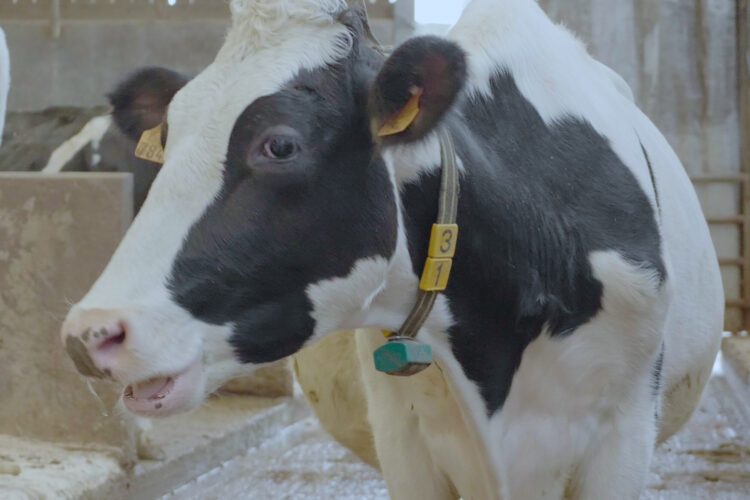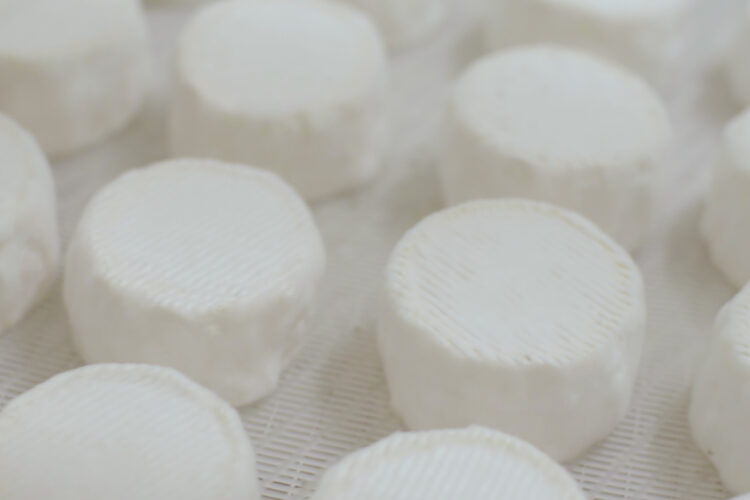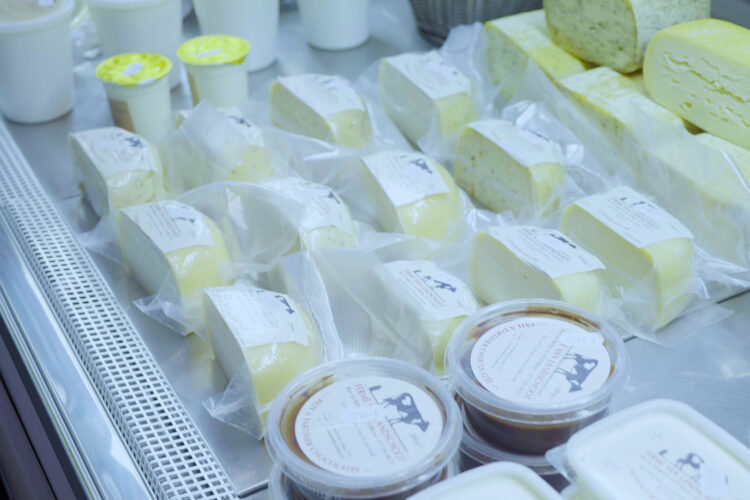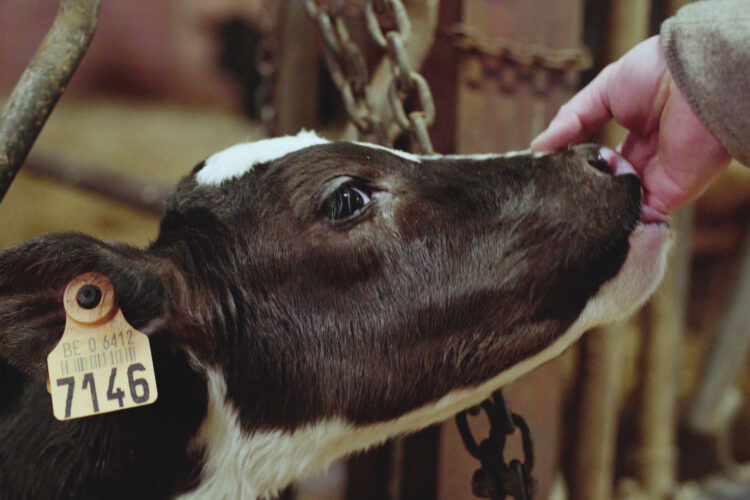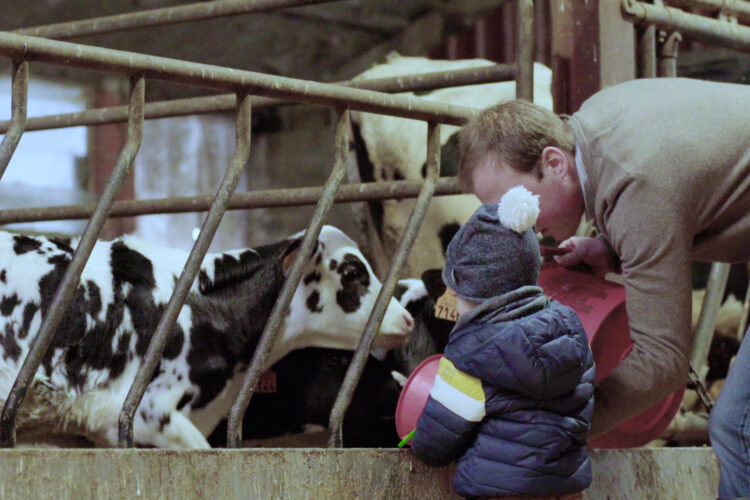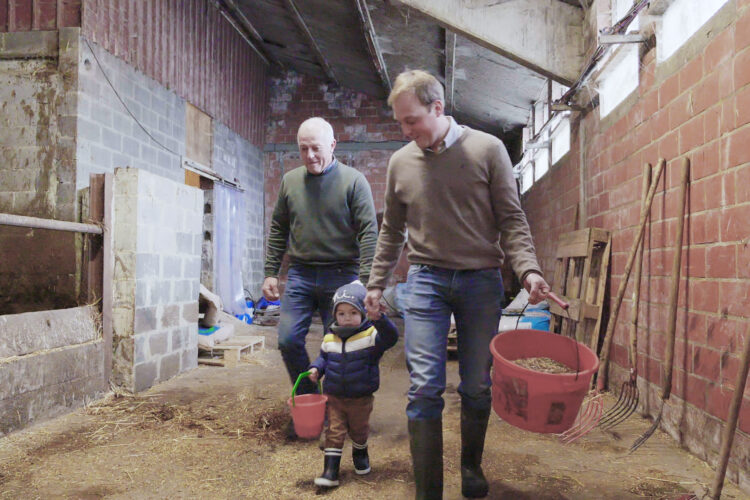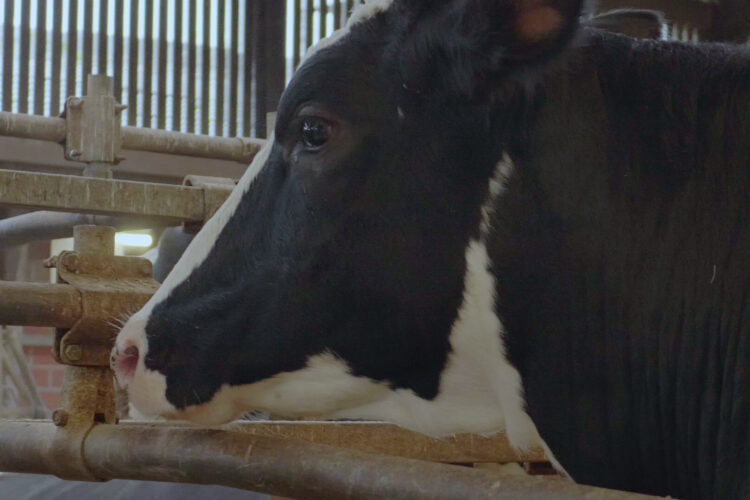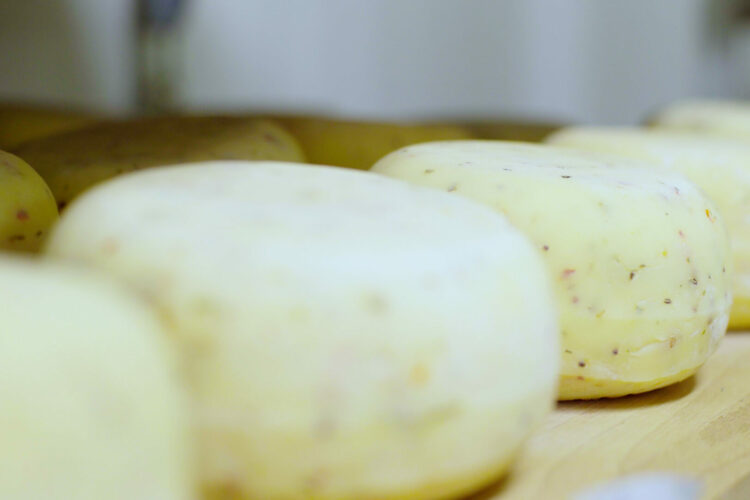Reasons to buy cheese from a local producer

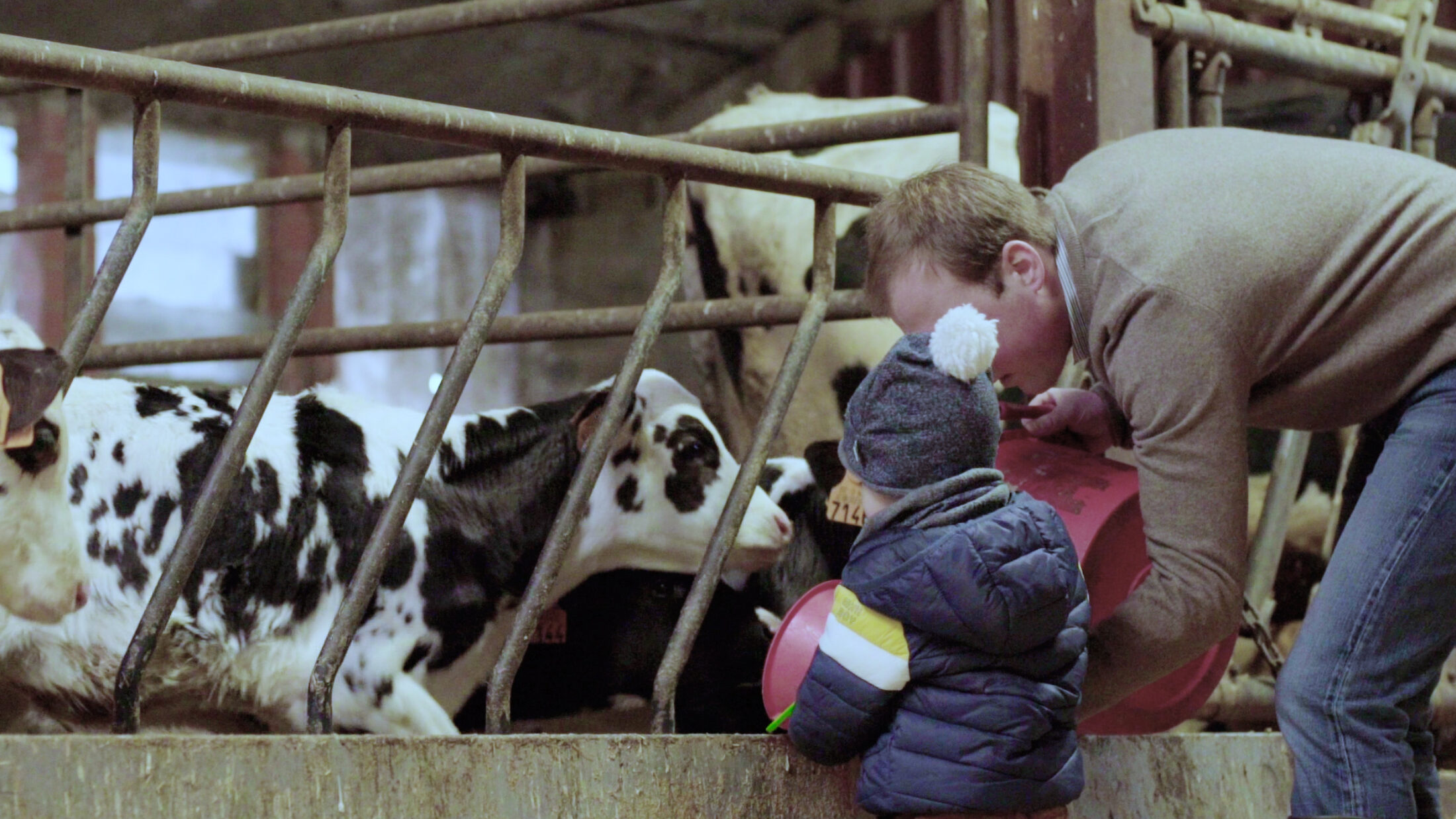
Have you been wondering where to go to buy good artisanal cheese in the region? The Charleroi Metropolitan Area is home to a great many farm shops where producers sell their products to customers directly. We paid a visit to the producers at the Van Landschoot farm, situated in Rèves.
The Van Landschoot farm specialises in dairy production. It has about a hundred hectares of land and a herd of 120 cows. It has been producing cheese for over 30 years. From what the cows are fed to the moment the cheese is sold, everything has been carefully considered to guarantee the very best products.
The first thing we notice is how the cows are treated. For farmer Erwin Van Landschoot, animal welfare is essential as it has a direct impact on the milk. “A healthy cow produces good quality milk,” he explains.
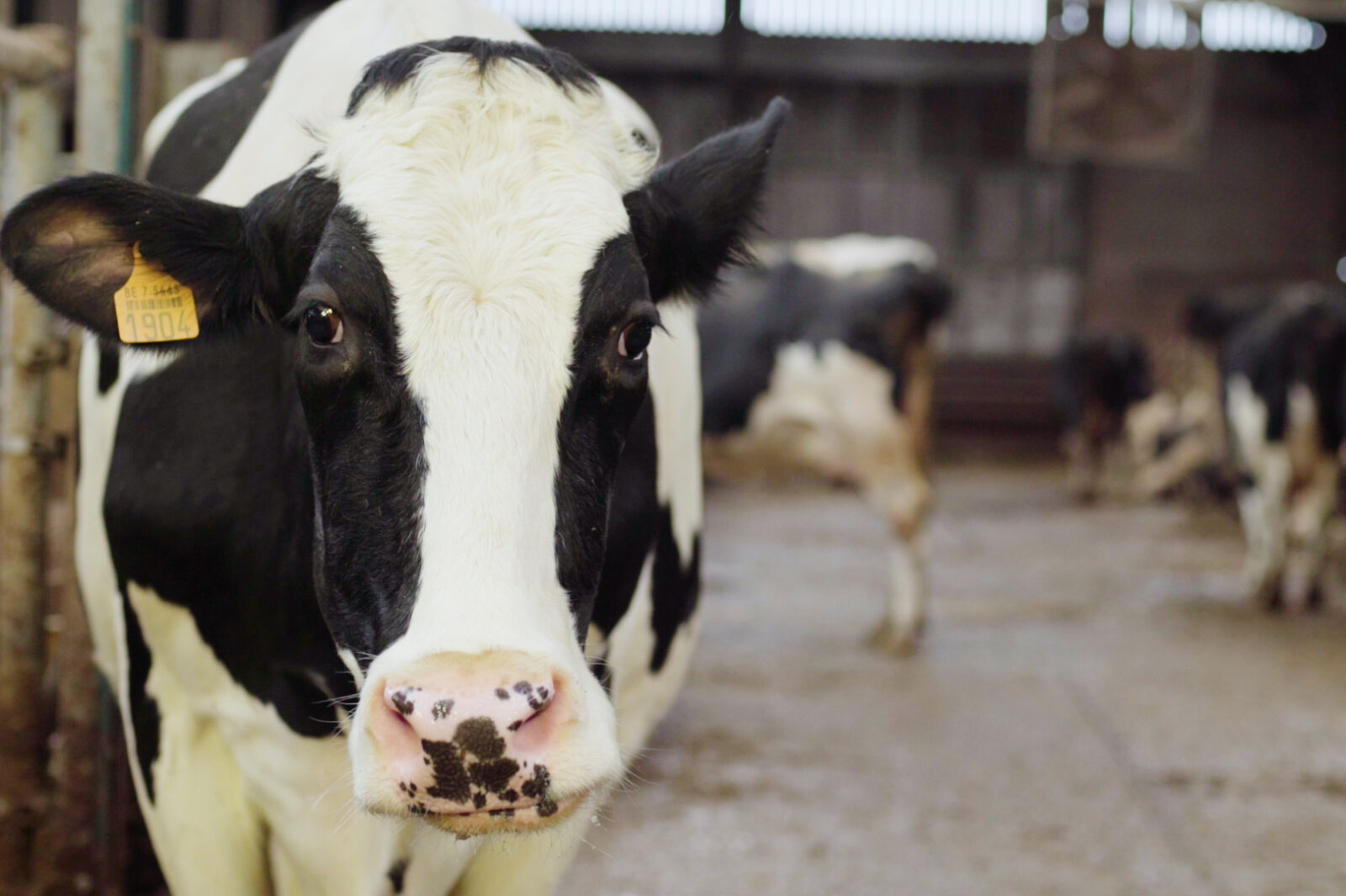
In the cowshed, the cows are provided with brushes and mattresses. Fans keep the cowshed nice and airy and help to keep it cool. “8 degrees is the ideal temperature for the cows. Anything above 25 degrees and it starts to become unbearable for them. All year round, I try to keep it at the right temperature so that the cows are as comfortable as possible.”
The milk is local and very fresh
The cows make their own way to the milking line. They can go there whenever they like, day and night, 24/7. “The frequency of milking depends on each cow. Just after giving birth to a calf, they tend to visit more often, roughly 4-5 times a day. There is a build-up of pressure in their udders. The cows are looking for one thing only: the relief that milking provides. Once they have finished lactating, the cows come less frequently: 2-3 times a day,” he explains.
“We reckon that each cow is milked approximately 2.8 times per day,” explains the farmer.
Some of the milk is collected and sent directly to the workshopto be processed. The rest of the milk is sold to an external dairy.
The processing workshop is just next to the cowshed, in a purpose-built structure, linked by a large pipe. “You see, when a cow is milked, this is where the milk goes. It is channelled away immediately. The milk is processed while it is still warm, without having to be transported or stored. This direct system has a twofold advantage: it preserves all the benefits of raw milk and reduces the ecological impact,” explains Sophie Van Landschoot-Depuydt, a cheesemaker and trained accountant.
About a dozen products are processed by hand in this workshop. Some of the cream is turned into butter in the churn, whilst a large vat collects the rest of the milk for cream cheese and fromage frais. The cheeses are shaped in a press. What will eventually become yoghurt is heated and then either left plain, or has flavours added to it.

Cheese is made by hand
Sophie visits the workshop almost every day. “I learned a great deal from my mother-in-law, she talked me through the different recipes. I also took classes. This allowed me to hone my cheese-ripening skills,” explains Sophie.
Different types of cheese, from the very fresh to the mature, are on offer. The fromage frais (whole milk soft white cheese and cream cheese) is made very quickly, within 1 to 2 days. The more mature soft cheeses (ripened soft cheese and ‘crémeux’, akin to a Camembert) spend 2-3 weeks in the cellar. Pressed and uncooked cheese, in the same vein as Gouda, needs 4 to 6 weeks to mature before it is ready for tasting.
The cheese from Rèves is available either plain or, depending on your taste, flavoured with garlic, fine herbs, basil, cumin, shallot or even beer…
“If there’s one you absolutely have to try, I would recommend the mature wholemilk soft cheese. It looks like a Neufchâtel or a Chaource. It is soft but its flavour packs a punch, it is very easy to cook with and is easy to spread on sandwiches. But truly the best thing to do is to sample a few and make up your own mind.”
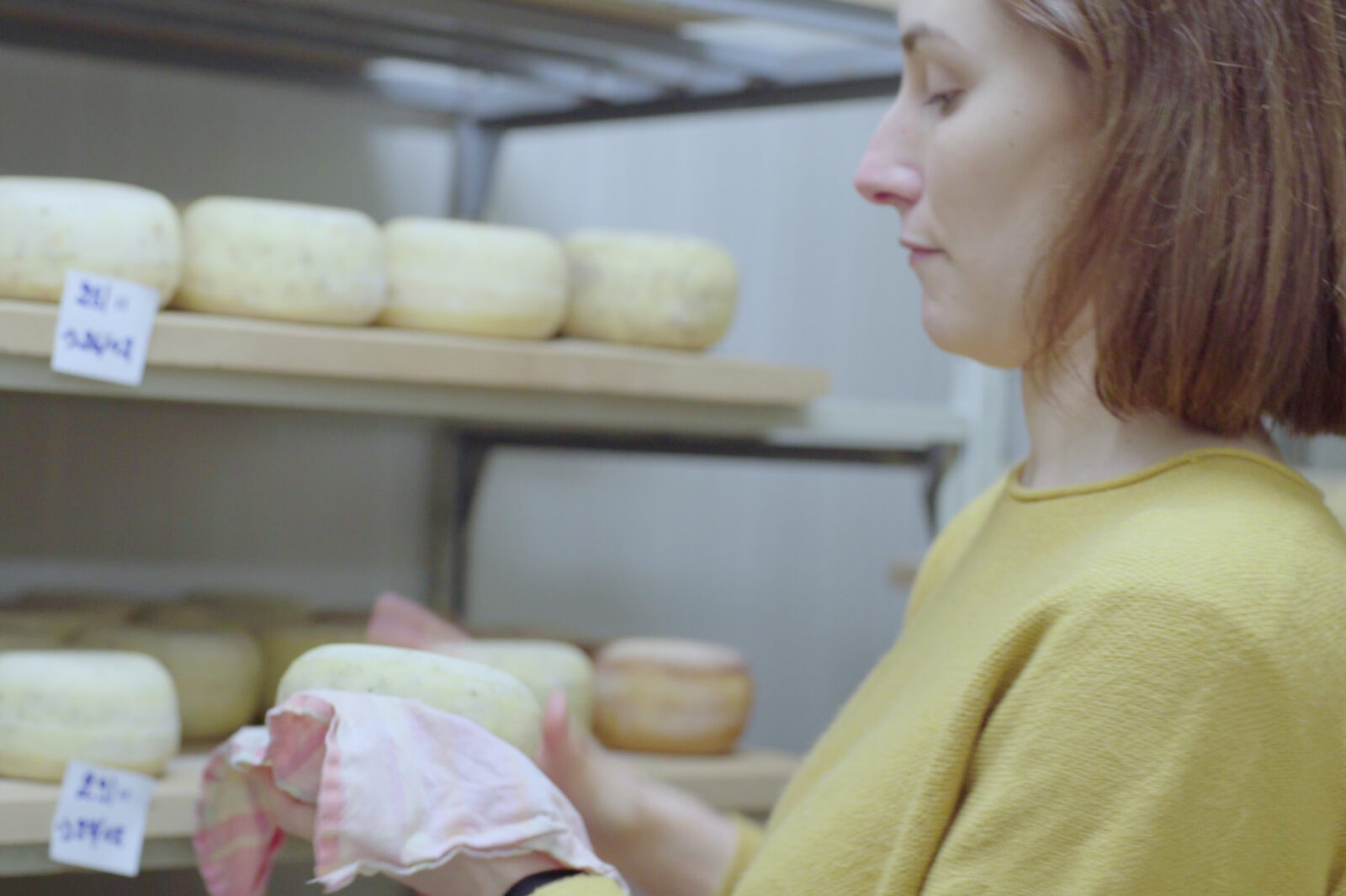
Producers selling you their products
Artisanal produce is sold at the region’s weekly markets in Fleurus, Carnières and Chapelle-lez-Herlaimont.
They are also on sale in the farm shop, open from Wednesday to Saturday. “I love meeting our customers. That way I know exactly who I’m making them for. I talk to them about what they like and what they would like to taste. I take the time to have a real conversation: some of them are parents of children who go to crèche with my son and live in the village,” says Sophie.
Clients come from the surrounding area. This local commerce creates genuine interactions.
You can also buy other local products from the farm such as milk, butter, chocolate or yoghurt. The shop has been diversifying its range and now sells other local products. You can find goat cheese from a farm in Jumet, strawberry jam, beers, apple juice, eggs or ‘tarte al’djote’ (a savoury tart made with fermented cheese and chard), etc.
“We wanted to diversify our range of products to satisfy the needs of our clients, but also to create a real network of local producers.”
There is a total of 3 people working directly for the farm. The way the farm is designed, we can balance our working and family life perfectly. “Our little boy loves coming to the farm. Luckily, given the amount of time we spend there, he often comes with us”, she tells us.
To sample one of their cheeses, there is only one thing left to do: visit the farm or seek them out at a local market.
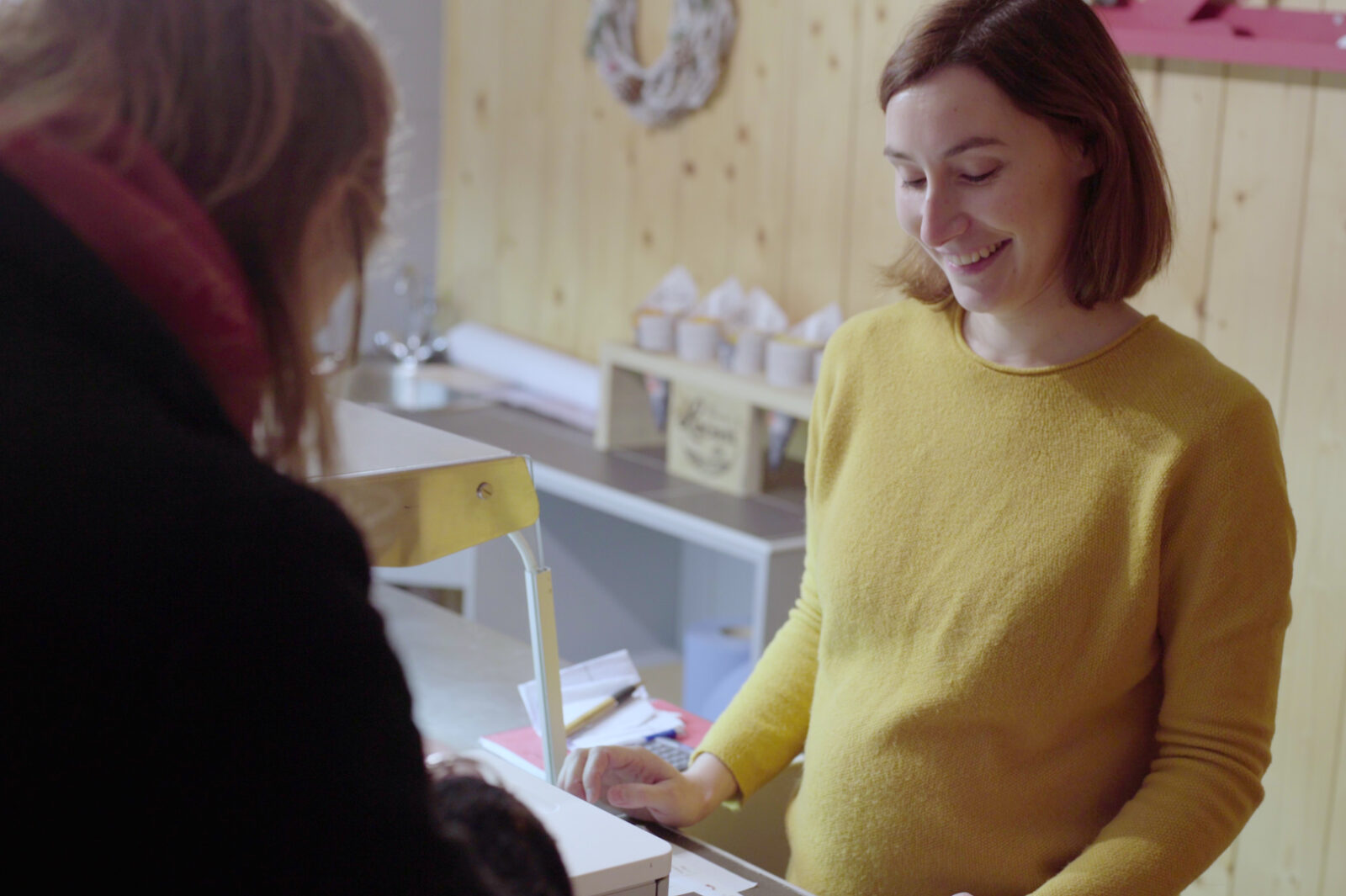
Contact:
Ferme Van Landschoot
Rue du Berger, 8
6210 Rèves
071/84.40.55
©Vidéo/Jérôme Gobin
